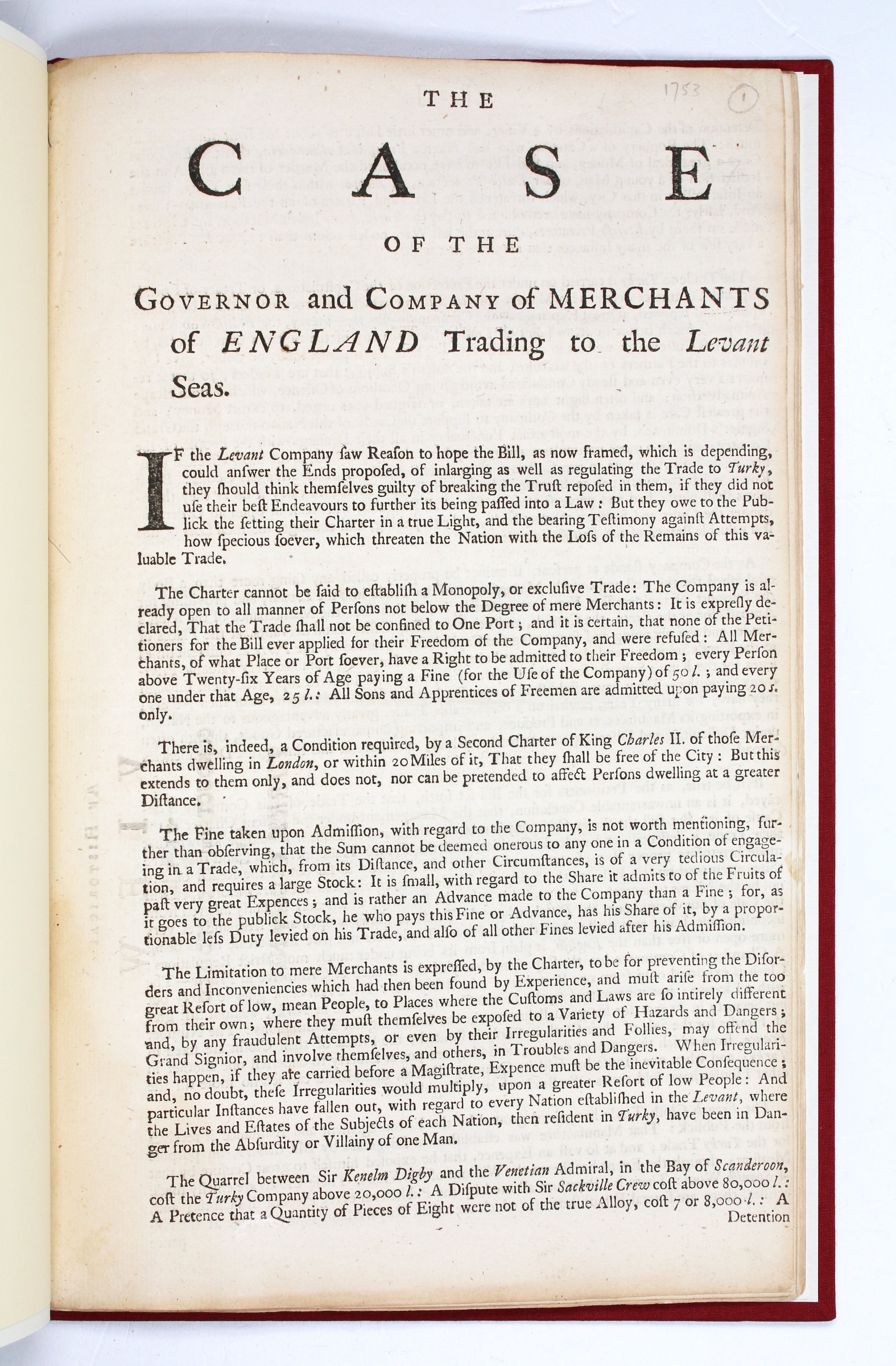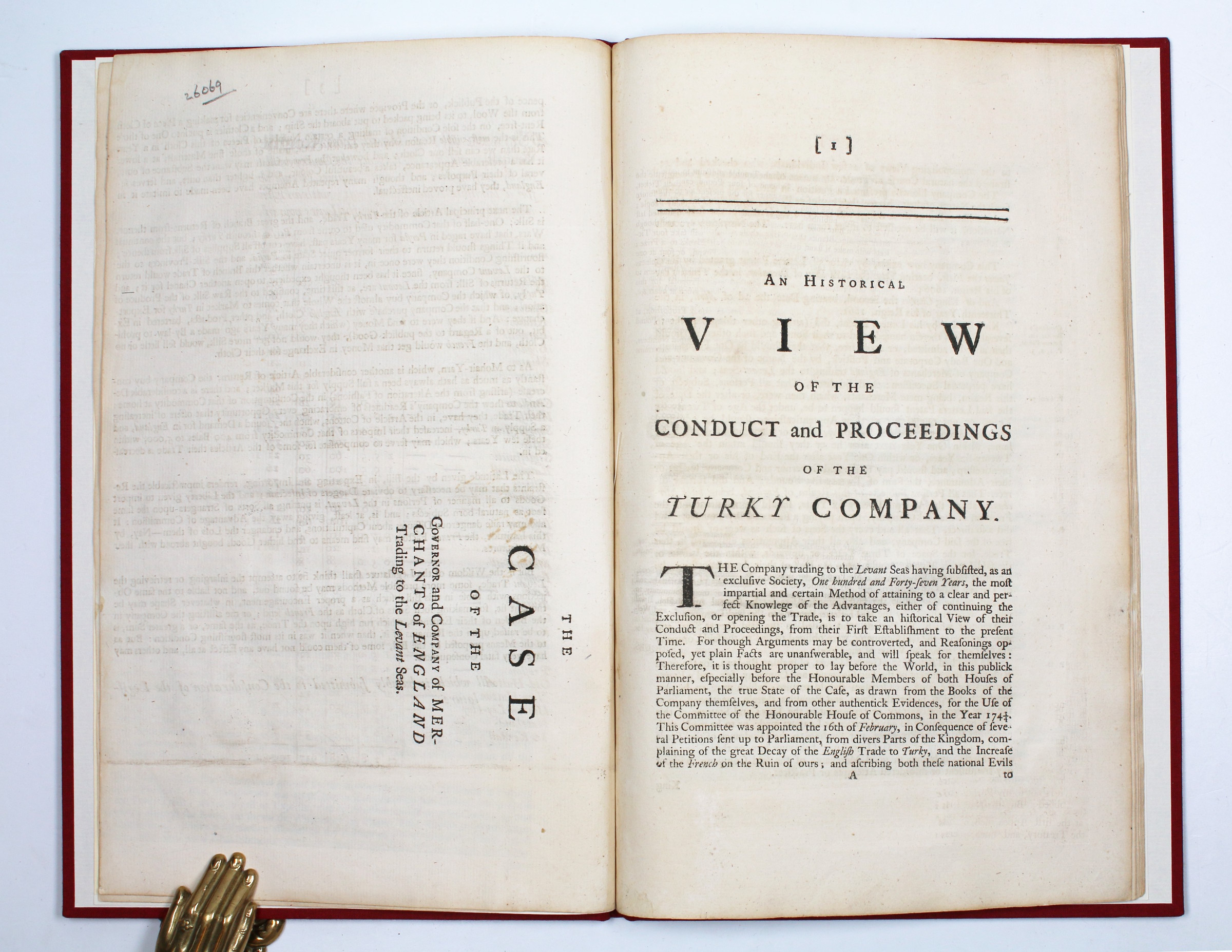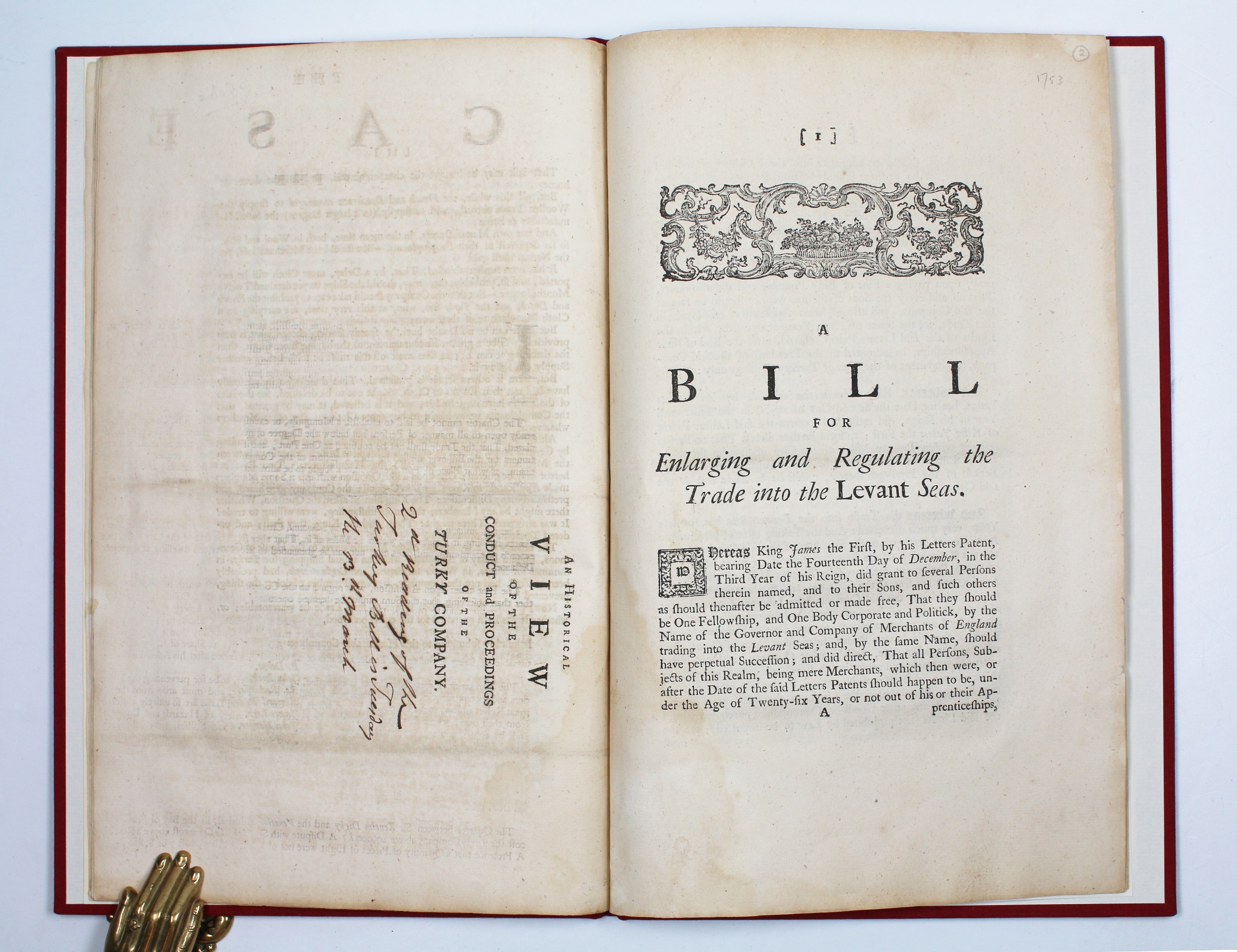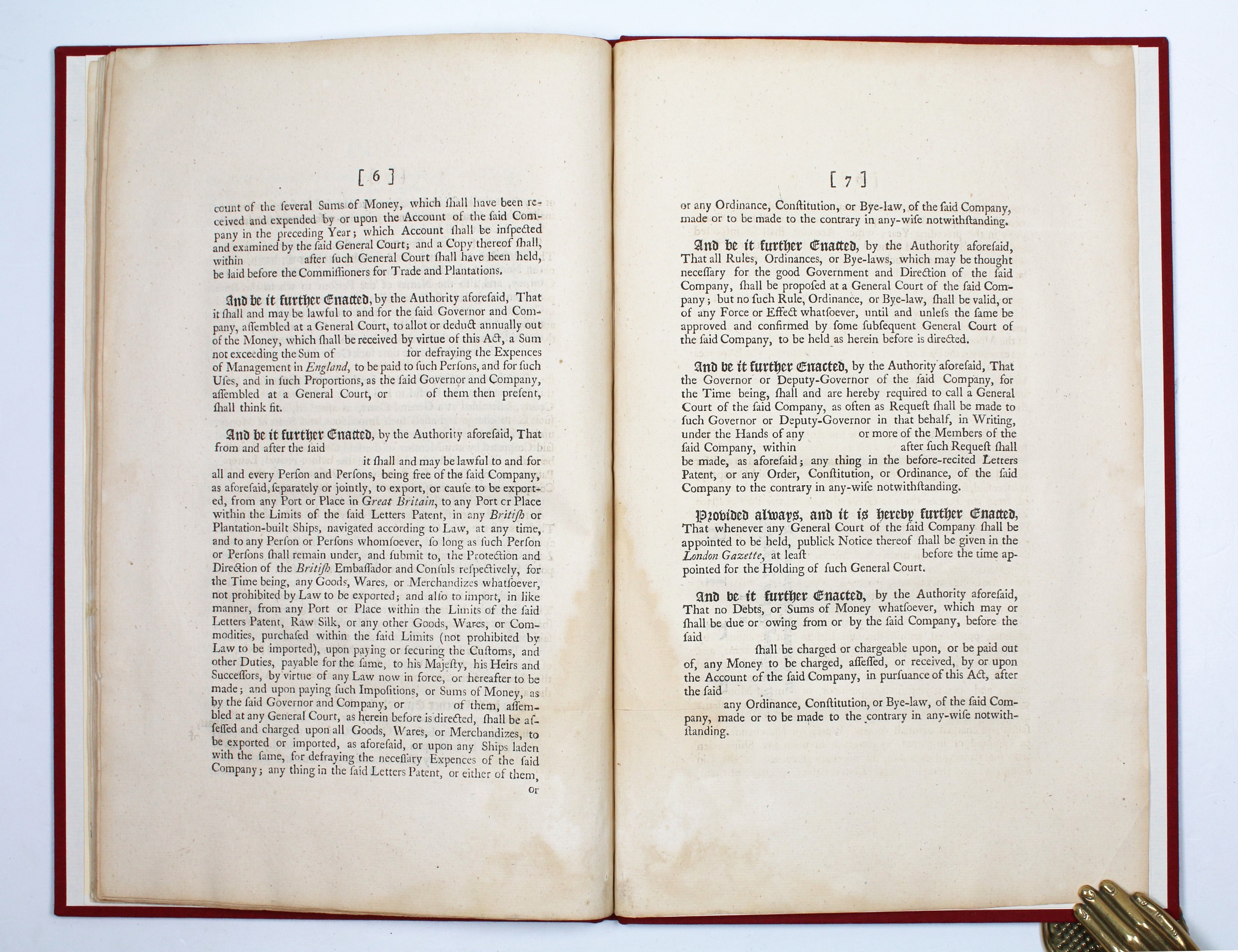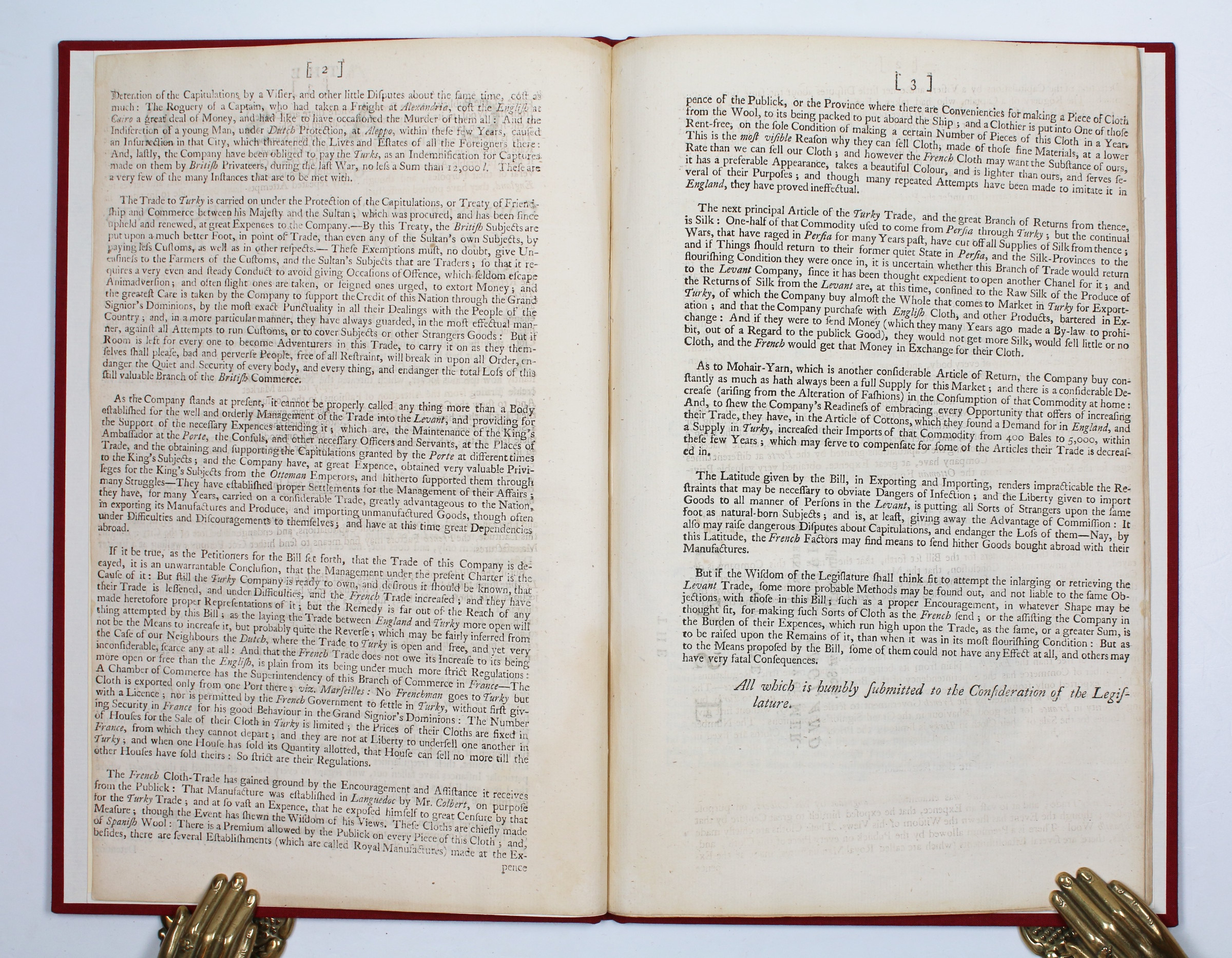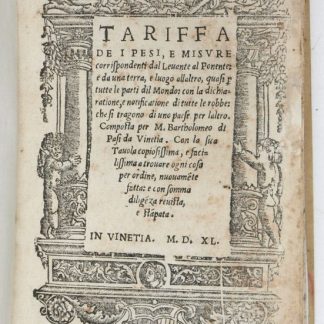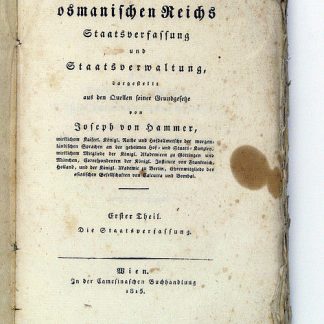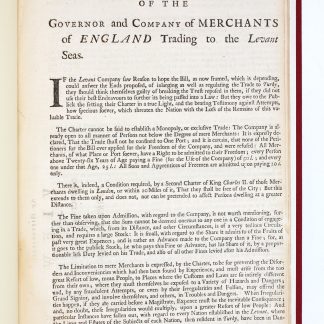The decline and fall of the Levant Company
The Case of the Governor and Company of Merchants of England Trading to the Levant Seas.
Folio (200 x 314 mm). 3, (1) pp.
(Bound with) II: An Historical View of the Conduct and Proceedings of the Turky Company. [London, 1753]. 11, (1) pp.
III: A Bill for Enlarging and Regulating the Trade into the Levant Seas. [London, 1740]. 7, (1) pp. With woodcut headpiece and initial.
Bound in modern red cloth, titled in gilt on spine.
€ 1,800.00
Three rare prints relating to the restructuring of the Levant (or Turkey) Company in the mid-18th century.
The Levant Company was an English chartered company formed in 1592 to advance trade and political alliances with the Ottoman Empire; James I renewed and confirmed the company's charter in 1606, adding new privileges. Membership began declining in the early 18th century, as the company was increasingly perceived as a drain on Britain's resources. While it was not formally dissolved until 1825, its purview was thrown open to free trade in 1754, marking the beginning of its fall.
Less well known than the British East India Company, the Levant Company was an often overlooked but important player in British mercantile ambitions in the Middle East, where it commanded a fleet of merchants plying the seaports of the Eastern Mediterranean. The larger and wealthier East India Company was the direct competitor in Smyrna, Constantinople, and Iskenderun, and took in the majority of the commerce; however, the Levant Company was actually more useful to British exports than its larger neighbour, whose business was largely conducted in money. Regardless of this usefulness to the crown and the full-throated opposition mounted in the first text in this volume, opposing a bill in the Houses of Parliament, these parliamentary discussions over opening up trade in the Levant and the Act which followed them marked the beginning of the end for the Levant Company. Despite a desire to compete as a monopoly, the Levant Company "had never been an exclusive or oppressive monopoly such as the East India or Greenland Company was, but on the contrary was based on the assertion of the inestimable liberty of trade. Every merchant who could pay the required entrance fee was of right admitted a member, and was then entitled to trade on his own account" (Palgrave). However, it had enjoyed at some points a limited monopoly, and privileges as a body politic (such as the ability to make its own laws), which were certainly waning. The 1754 Act opened up the trade even further, with all English merchants able to pay £20 for admission to the Levant Company's rights and privileges.
Margins a touch closely trimmed but without text loss; remarkably well preserved.
Palgrave III, 595.

